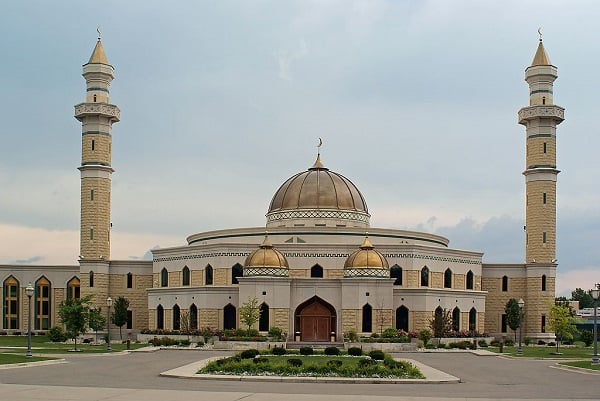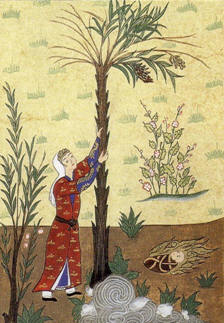
A few days ago my fellow Patheos blogger over at the Muslim Channel, Dilshad Ali, criticized Duke University in Durham, North Carolina for rescinding its permission to broadcast the Islamic adhan (call to prayer) from its Chapel tower. Dilshad wrote:
For me, if Duke had decided this wasn’t a good thing to do from the very beginning, that would’ve been it. But to decide that the adhan would be called from the Bell Tower, then to withdraw that decision in 24 hours, well it’s just sad. I understand there is a lot more to this story and a lot that the university has to consider. But at the very least, it’s disappointing.
I like Dilshad, and it was hard to witness her hurt and disappointment at this reversal of policy. I think, though, there are some factors which make Duke’s decision the prudent one. I’m pretty sure, too, that Dilshad, if she reflected on it, would likewise not appreciate having a Christian prayer broadcast from the minaret at her local mosque.
FIRST, ABOUT THE CONTROVERSY
Duke University had received a request from the Muslim Student Association for permission to chant the adhan, the call to a weekly prayer service, from the Duke University Chapel bell tower each Friday. For Muslims, the tradition of the call to prayer is a standard part of ritual life in their home communities on their weekly day of prayer. Imam Adeel Zeb, Muslim chaplain at Duke, explained that the adhan serves “…as a reminder to serve our brothers and sisters in humanity.” The adhan, Zeb explained, “brings Muslims back to their purpose in life.”
But news of this accommodation was not well received. Some celebrated the announcement, calling it a welcome message that religious pluralism is respected and honored on the Duke campus. Many others, though, were less than enthusiastic to learn that the Islamic “Allahu Aakbar” would be chanted over the loudspeaker system of the university with its Christian roots.
The Reverend Franklin Graham, son of the famed evangelist Billy Graham and president of the Billy Graham Evangelistic Association, wrote in a Facebook post:
“As Christianity is being excluded from the public square and followers of Islam are raping, butchering, and beheading Christians, Jews, and anyone who doesn’t submit to their Sharia Islamic law, Duke is promoting this in the name of religious pluralism. I call on the donors and alumni to withhold their support from Duke until this policy is reversed.”
In the wake of criticisms, loss of alumni support, and some unspecified security threats, Duke University reversed its policy.
So here we are.
What, exactly, is the prayer that Duke’s Muslim community wanted to have broadcast across campus via an amplified speaker system? The adhan begins and ends with the “Allahu Akbar” that has become so familiar to terror-weary citizens. Yes, it’s a prayer; but it’s the cry voiced by the attackers at Charlie Hebdo, by the men who flew planes into the World Trade Center on September 11, by the pilot of that AirAsia jet that plunged into the Java Sea.
One can’t help but grieve that a prayer has become associated with such terrorist activity; but such is the world in which we live. Here are the words to the adhan:
Allah is great.
I bear witness that there is no God but Allah.
I bear witness that Muhammad is the Messenger of Allah.
Hasten to worship.
Hasten to success.
Prayer is better than sleep.
Allah is great.
There is no God but Allah.
Political analyst and Islam specialist Robert Spencer, an Eastern Rite Catholic who has authored 13 books and who runs the website Jihad Watch, has defined Islam as a political system cloaked in religion. He explains:
— A Muslim, by virtue of being a Muslim, believes in Islamic supremacy.
— Islam rules over all other systems.
— A Muslim rules over all other people who do not believe in Islam.
— They state these things five times daily in their call to prayer (Adhan):
I believe that Duke should not have permitted the Islamic prayer to be broadcast across its campus, for two reasons. Those reasons are (1) Duke’s history and the intent of its founders; and (2) the chasm between Islam and the other great religions, Christianity and Judaism. Here, in a nutshell, my explanations:
1. DUKE’S CHRISTIAN HISTORY
Duke University was instituted as a Christian school, and its founders hoped to impart the Christian gospel. It was founded in 1838 by Methodist and Quaker families. By 1859, the college had changed its name to Trinity College and took as its motto Eruditio et Religio (Knowledge and Religion). The school offered free education to Methodist preachers, in exchange for financial support from the church. As the school grew, the first great expansion of its educational program was the opening of the School of Religion.
Although Duke is no longer a private religious institution and prides itself on its inclusivity, its Christian founders and developers constructed a specifically Christian chapel, and intended that it would be used for Christian worship. “The Duke Chapel is a very visible and powerful and deeply emotional symbol of the university,” said Michael Schoenfeld, vice president for public affairs and government relations. “We need to be even more thoughtful in the way that we address it.”
Duke’s Muslim students–roughly 5% of the student population–are welcomed to pray in a basement meeting room at the church; and that privilege will remain. This week, students gathered for the adhan on the school’s public square, before moving to their regular location in the basement for prayers. But they were not permitted to blast their message of non-inclusivity across the campus.
2. THE INCOMPATIBILITY OF ISLAM WITH OTHER RELIGIONS
Here, I admit, I am not an expert. I would, like most Christians I know, be happy to follow the exhortation of the popular bumper stickers and “COEXIST.” But those who have studied Islam cite the Koran’s call to defeat the infidel. Is Islam just as happy to coexist with me?
I found an instructive interview in the Italian on-line newspaper Libero Quotidiano. In it, esteemed Islam scholar Valentina Colombo explains in detail why Islam is incompatible with other religions.
Dr. Colombo is well prepared to help us better understand the Islamic faith. She teaches Geopolitics of the Islamic World at the European University, Rome and Plural Islam at Atenco Pontificio Regina Apostolorum, Rome. She is Senior Fellow at the European Foundation for Democracy, Brussels. She is a member of the Board of the Guarini Institute for Public Affairs at John Cabot University, Rome; member of the scientific board of the Center Di-con-per Donne, University Tor Vergata, Rome; and a member of the scientific boad of the Institute of High Studies for Women, Rome. After graduating in Arabic Language and Literature from Cattolica University, Milan, she earned a Ph.D. in Islamic Studies from Istituto Universitario Orientale, Naples. She has been a member of Comitato per l’Islam Italiano, Ministry of Interior. She has published various studies on Islam, intellectuals and civil liberties. Her research focuses on the plurality of the Islamic world, radical Islam and liberal intellectuals, radical Islam vs. women’s rights.
Speaking of the inspiration for terrorism within the Quran, Colombo explained that in Islam, there is no authority which approves or disapproves individual interpretations of the sacred text. Even in the case of Charlie Hebdo, militant Islamists had to confront secularism.
But here is the information regarding the Quran which I’d not understood: The book was written by Mohammed in two parts:
- The first part was composed during Mohammed’s time in Medina, when he had become the leader of the local community and Islam became the state religion; and he dreamed of returning to Mecca, his hometown, and win her back.
- The last part contains all the laws and all the dictates concerning the relationship between the Ummah (the Islamic community), and the other. And it is from this last section that militants derive justification for any act related to Islamic terrorism.
The Islamic extremists consider the whole Quran valid. Even today, one can concentrate on some Medina suras and, extrapolating verses, find reasons to fight the infidel–which can be a Christian, Jew, the journalists at Charlie Hebdo, or even the Muslim who does not think like him. Because there is no authority figure, no one can decide which interpretation of the Quran is valid.
But there is also an Islamic tradition. “At the word of God,” said Dr. Colombo, “you add the second source, the hadith, which includes the sayings and deeds of Muhammed. In his official biography, among other things, it is said that Mohammed was killed by his own hand the Jews.” It is believed that he was poisoned by a Jewish woman whom he’d enslaved and taken for his wife.
That reading is not only accepted by the terrorists–but has received wide acceptance among Muslims. If Charlie Hebdo had been printed in Saudi Arabia, for example, its cartoonists would have been condemned to death, according to local law, inspired by the sharia.
“Of course, even if Saudi Arabia officially condemned the attack on Charlie Hebdo,” Dr. Colombo explained, “they imposed at the same time the first part of the sentence on Raif Badawi, thirty-year-old blogger who founded a site of liberal thinkers.” Badawi’s sentence includes one hundred thousand lashes in the public square, 10 years imprisonment, monetary penalty and 10 years without being able to leave the country. And his lawyer, a human rights activist, remains in prison today–arrested under the Anti-Terrorism Act.
Is no one able to challenge the cultural dominance? “There are attempts,” said Colombo. “The institution headed by the Grand Mufti of Egypt, Dar al-Istà, recently published a text. The ideological battle, which explains that all the verses used by ISIS are contextualized as revealed on special occasions and no longer valid for the current situation. Unfortunately, intellectuals and reformers who proposed a historicizing of the text are hanged, as Mahmoud Mohammed Taha in Sudan, or were exiled, as Nasr Abu Zayd in Egypt.”











